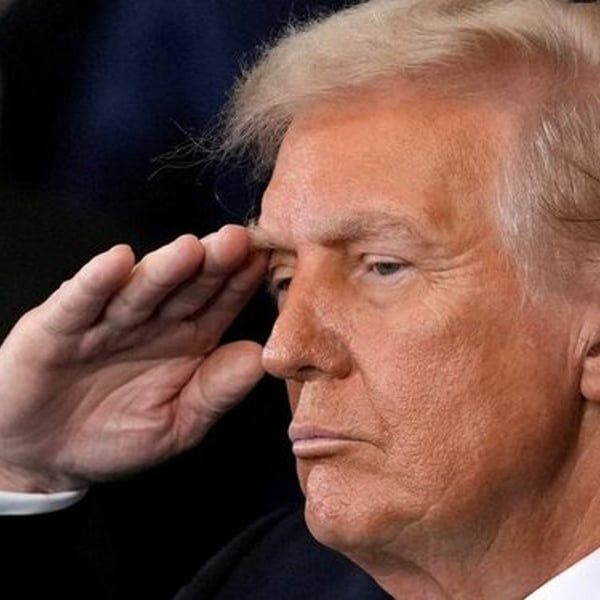By
Reuters
Published
January 21, 2025
President Donald Trump did not immediately impose tariffs on Monday, but said in his inaugural address that the United States would collect “massive amounts” of revenue from foreign trade duties as his administration works to rebuild American industry.
A Trump administration official said the new president would issue a sweeping trade memorandum that does not include immediate tariffs but directs federal agencies to evaluate U.S. trade relationships with China, Canada and Mexico.
After weeks of global speculation about what tariffs Trump would impose on his first day in office, news that Trump would take more time on tariffs fueled a relief rally in global stocks, while other major currencies rallied against the dollar.
Trump did not mention specific tariff plans in his inaugural address, but reiterated his intention to create the External Revenue Service, a new agency to collect “massive amounts” of tariffs, duties and other revenue from foreign sources.
“I will immediately begin the review of our trade system to protect American workers and families,” Trump said. “Instead of taxing our citizens to enrich other countries, we will levy tariffs and taxes on foreign countries to enrich our citizens.”
Trump added that his policies would make the United States “once again a manufacturing nation.”
Howard Lutnick, Trump's nominee for Commerce Secretary, who has been tapped as his overall trade policy chief, said at a rally that the External Revenue Service will “impose tariffs as protective walls” for American industry that will push foreign companies to build factories in the United States. .
During his election campaign, Trump promised to impose high tariffs of 10% to 20% on global imports from the United States and 60% on products from China to help reduce a trade deficit that now exceeds $1 trillion a year.
After his November election, he said he would sign “all the necessary documents” upon taking office to impose an immediate 25% surcharge on imports from Canada and Mexico if they failed to stem the flow of illicit drugs and incoming immigrants. illegally to the United States. .
Such tariffs would break long-standing trade agreements, disrupt supply chains and raise costs, trade experts say.
The official, confirming a Wall Street Journal report that cited a summary of Trump's memo, said the new president will direct agencies to investigate and remedy persistent trade deficits and address the unfair trade and monetary policies of other nations.
The memo will single out China, Canada and Mexico for scrutiny but will not announce new tariffs, the official said. It will direct agencies to evaluate Beijing's compliance with its 2020 trade deal with the United States, as well as the status of the U.S.-Mexico-Canada Agreement, the official said.
The U.S. dollar fell broadly on the news against a basket of currencies of major trading partners, with particularly large gains in the euro, Canadian dollar, Mexican peso and Chinese yuan. MSCI's measure of global stock markets rose. U.S. financial markets are closed for the Martin Luther King Jr. Day holiday.
Some industry groups and trade lawyers in Washington had speculated that Trump would invoke the International Emergency Economic Powers Act, a law with broad powers to control imports in times of national emergency, to impose immediate tariffs.
But the upcoming trade memo signals a more methodical approach that would likely involve trade investigations under other legal authorities such as Section 232 of the National Security Trade Act and Section 301 of the Unfair Trade Practices Statute. Trump invoked these laws during his first term, and investigations into steel and aluminum and Chinese imports took months to complete.
Canadian Finance Minister Dominic LeBlanc told reporters in Ottawa that it would be a positive step for the United States to study bilateral trade relations instead of imposing tariffs. Industry groups also expressed relief at the lack of immediate obligations.
“American businesses would welcome a deliberative approach that identifies unfair trade practices and helps Americans succeed in the global economy,” said Jake Colvin, president of the National Foreign Trade Council, which represents a wide swath of large American companies in commercial matters.
Trade analysts said they still expect Trump to go ahead with a global tariff early in his administration.
“The universal tariff was a central part of the economic plan that he carried out and I think he is going to do what he said he would do,” said Kelly Ann Shaw, a former White House trade adviser during Trump's first term.
“This is an idea he's supported for a long time,” Shaw, now at law firm Hogan Lovells, said in an interview last week.
In its first term (2017-2021), the Trump administration used investigations to impose tariffs on steel and aluminum imports and launch tariffs on some $370 billion worth of Chinese imports, sparking a tit-for-tat tariff war. eye between the two largest economies in the world.
The United States and China ended the conflict in 2020 with an agreement for Beijing to increase its purchases of American exports, from agricultural products to airplanes, by $200 billion annually, but it was never fulfilled when the pandemic hit. The upcoming memo indicates that the Trump administration will try to pressure China to live up to those commitments.
© Thomson Reuters 2025 All rights reserved.












